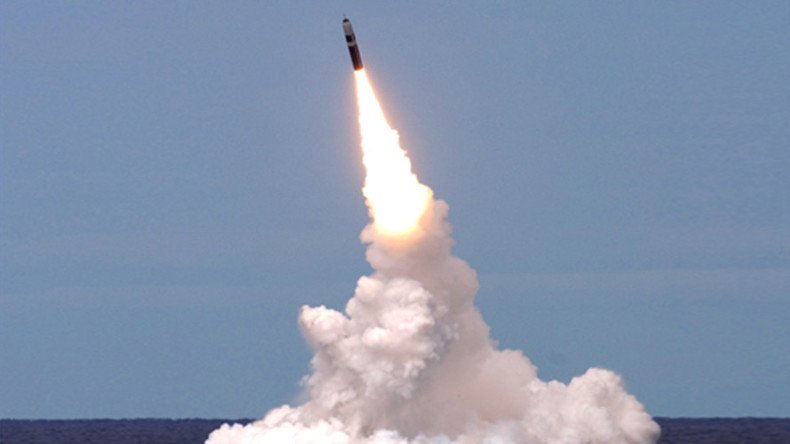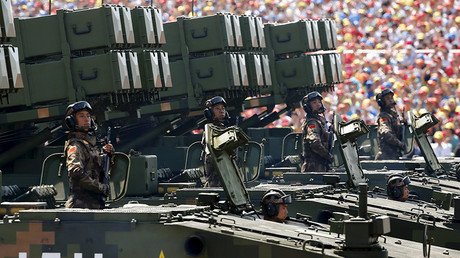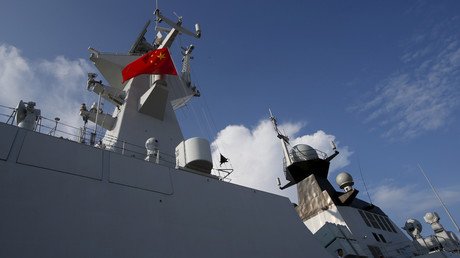I’d launch nukes at China on Trump's orders, says US Pacific Fleet chief

The US Pacific Fleet chief said he would obey a hypothetical order to launch a nuclear strike against China if the president chose to give it. The remarks follow the director of the CIA’s recent assessment that Beijing poses a major threat to the US in the long run.
Commander of the US Navy’s Pacific Fleet Admiral Scott Swift was speaking at an Australian National University security conference on Thursday, AP reported.
Responding to a question on whether he would initiate a nuclear strike against China at President Donald Trump's orders “next week,” the admiral bluntly said: “The answer would be: Yes.”
Swift, who has led the Pacific Fleet since 2015, explained: “Every member of the US military has sworn an oath to defend the constitution of the United States against all enemies foreign and domestic and to obey the officers and the president of the United States as commander and chief appointed over us.”
He then struck a conciliatory tone, saying: “This is core to the American democracy and any time you have a military that is moving away from a focus and an allegiance to civilian control, then we really have a significant problem.”
The statement came in the wake of the massive US-Australian biennial exercise Talisman Saber 2017, which involved 36 vessels, including the aircraft carrier USS ‘Ronald Reagan,’ 220 aircraft and 33,000 military personnel.
It also came just a day after CIA Director Mike Pompeo asserted in a rare interview that China is more of a long-term threat to US national security than any other world power, including Russia.
“It's hard to pick between China, Russia and Iran to be honest with you. I guess if I had to pick one with a nose above the others, I'd probably pick China,” Pompeo told the Washington Free Beacon on Wednesday.
“They have a real economy that they have built, unlike Russia that lives and dies on how many barrels of oil they can pluck out of the ground. And Iran that is similarly very single sector derivative and not to the scale of China population-wise,” the intelligence chief explained.
According to Pompeo, Beijing is willing to become a near-peer opponent to the US.
“I think it’s very clear when they think about their place in the world, they measure their success in placing themselves in the world where they want to be vis-à-vis the United States and not as against anyone else,” he said.
Following Admiral Swift's comments, Pacific Fleet spokesman Captain Charlie Brown explained that he was referring to the principle of civilian control over the armed forces. "The admiral was not addressing the premise of the question, he was addressing the principle of civilian authority of the military," Brown said. "The premise of the question was ridiculous."
There has been no response from China so far.
While remaining major trading partners, the US and China still share several points of contention. The most acute ones involve tensions over the status of the South China Sea, an area crossed by numerous maritime shipping lanes.
Whereas Beijing claims that its sovereignty over key parts of the sea dates back centuries, Washington insists on what it calls freedom of navigation.
To back its stance, the US regularly deploys warships and combat aircraft to contested waters. Beijing frequently protests those missions and deploys its own military assets to counter the projection of US power.














